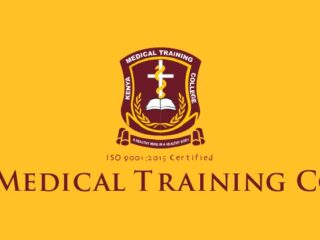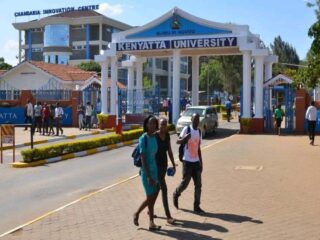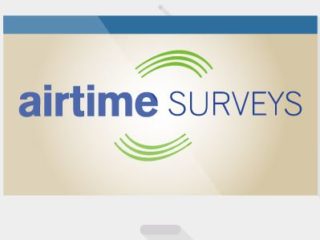Below is a list of courses offered at Cooperative University, admission requirements, contacts and fee payment options:
Cooperative University location and contact
Location:
Karen,Nairobi
P.O Box 24814-00502
Phone Number:+254 724 311 606
E-mail:enquiries@cuk.ac.ke
At Nairobi CBD you can board a bus at Ambassador stage which will take you direct to Cooperative University
List of courses and admission requirements
Professional Courses
- Certified Co-operative Professional (CCOP)
- Certified Procurement and Supply Professional of Kenya (CPSP-K) & Associate in Procurement and Supply of Kenya (APS-K)
- Certified Secretaries (CS), Certified Public Accountant (CPA) & Certified Investment & Financial Analysts (CIFA), Accounting Technician Diploma (ATD)
- Diploma and Associate Diploma in Banking & Financial Services
Mode of study
In-Person learning (Day, Evening, Weekends)
Online and Blended Learning
Intake Dates: January and July
Certified Co-operative Professional (Ccop)
- Brief introduction about the course
The CCOP qualification is offered by the Kenya Society of Professional Co-operators (KSPC) through a partnership with KASNEB. Under the partnership, documented through a Memorandum of Understanding, KSPC develops the syllabus and the CCOP examination whereas KASNEB makes arrangements for the administration, marking and processing of the examination. The CCOP examination is structured in three modules, with each module featuring two sections, making a total of six sections. The Co-operative University of Kenya is accredited by KSPC to train the students and then the students will be externally examined.
Registration requirements
A person seeking to be registered as a student for the CCOP examination must show evidence of being a holder of either one of the following minimum qualifications:
- Kenya Certificate of Secondary Education (KCSE) examination with an aggregate average of at least grade C+ (C Plus);
- Kenya Advanced Certificate of Education (KACE) with at least TWO Principal passes provided that the applicant has credits in Mathematics and English at Kenya Certificate of Education (KCE) level;
- KASNEB Diploma or higher qualification;
- KNEC diploma qualification;
- Degree from a recognized university;
- Such other equivalent qualifications may be approved by KSPC.
Persons recommended to pursue this course
- Those who intend to work in the Co-operative sector from different backgrounds
- Those with Bachelor of Co-operative Business/ Bachelor of Co-operatives and Community Development/Post-graduate Diploma in Co-operative/Master of Co-operative Management and would like to be certified as professionals
- Those practicing in the co- operative sector with no relevant qualifications
Course Structure (List of Modules)
MODULE ONE
Section 1
- Paper No.1 Co-operative philosophy and management
- Paper No. 2 Co-operative Accounting
- Paper No. 3 Business communication
- Paper No.4 Computer application for Cooperatives
Section 2
- Paper No. 5 Co-operative law and legislation
- Paper No. 6 Management mathematics (Quantitative Techniques)
- Paper No. 7 Co-operative Banking & Practice
- Paper No. 8 Co-operative Education,Training and Information
MODULE TWO
Section 3
- Paper No. 9 Taxation for Co-operatives
- Paper No. 10 Entrepreneurship for Cooperatives
- Paper No. 11 Co-operative Banking & Practice
Section 4
- Paper No. 12 Co-operative Management Information System
- Paper No. 13 Marketing for Co-operatives
- Paper No. 14 Co-operative Finance and Investments
MODULE THREE
Section 5
- Paper No. 15 Strategic management for Cooperatives
- Paper No. 16 Corporate governance and Ethics
- Paper No. 17 Risk management for Cooperatives
Section 6
- Paper No. 18 Financial Reporting for cooperatives
- Paper No. 19 Co-operative Auditing and Investigation
- Paper No. 20 Co-operatives and Environment
Fees structure (Cost per section/unit)
| Module/section | No of units | Fees per unit Kshs |
| Module I, section 1&2 (per section). | No of units per section 4 | 5,000 |
| Module 2, section 1&2 (per section) | No of units per section 3 | 5,500 |
| Module 2, section 1&2 (per section | Module 2, section 1&2 (per section | 6,000 |
Other charges
Operational Charges
- i) Registration fees KES 1,000 (Once)
- ii) ID charges KES 500 (Once)
- iii) Library fees KES 500 (Per Section)
Internet and computer KES 1,500
Total KES 3, 500
Exemptions and how to apply
- Students will be granted exemptions in those papers in which they demonstrate sufficient coverage of course content in their respective qualifications. For this purpose, an applicant may be required to submit the institutional catalogue detailing the course content for a specific paper under consideration.
- Applicants for exemptions should complete the official Application for Exemption Form (also available for download on the KSPC website csk.or.ke and attach the required documents specified in the form, including certified copies of academic and professional certificates and transcripts. Students awaiting graduation should attach certified copies of transcripts and a letter from the university confirming that the student has completed the course for which exemption is being sought.
- Students who have done the following programmes Bachelor of Co-operative Business/ Bachelor of Co-operatives and Community Development/Post-graduate Diploma in Co-operative/Master of Co-operative Management will be exempted 16
Examination Fee Structure:
- Registration fees 4,000
- Annual Registration Renewal Fee 1,000
- Registration Re-activation Fee 2,000
- Student Card replacement fee 500
Professional Examination Fee (CCOP)
| Module I: | Section 1: KES 5,500 | Section 2: KES 5,500 | Total: KES 11,000 | Single Paper: KES 3,000 |
| Module II: | Section 3: KES 7,500 | Section 4: KES 7,500 | Total: KES 15,000 | Single Paper: KEs 4,200 |
| Module III: | Section 5: KES 9,500 | Section 6: KES 9,500 | Total: KES 19,000 | Single Paper: KES 5,400 |
Exemptions
Module I: KES 3,900 Per Paper
Module II: KES 5,200 Per Paper
Module III : KES 6,600 Per Paper
Intake dates and Mode of Study
Intake dates: January and July
Mode of study;
In Person learning: Day, Evening, Weekends
Online and Blended Learning
Certified Procurement and Supply Professional of Kenya (Cpsp-K)
Brief introduction about the course
The course is designed to equip trainees with knowledge, practical skills and attitudes that will enable them to perform duties as a buyer, supply chain manager, supervisor and or director in an organisation. The Co-operative University of Kenya will train students but they will be externally examined by KISM in partnership with KASNEB.
Entry Requirements
Degree with at least 480 credits in relevant subject areas; or
Equivalent prior learning experience and/or a qualification in relevant subject area; or
600 credits after KNQA Level 2, APS-K with 3 years’ relevant work experience.
Persons recommended to pursue this course
- i) Students intending to pursue career in procurement
- ii) Practitioners who may wish to gain theoretical knowledge in procurement
- iii) Those who have done other professional course
- Course structure
Part I
- understanding Organizational Environment (Exemptible)
- procurement of Goods, Services and Works
- Procurement Planning
- Asset Management and Managerial Accounting (Exemptible)
- Category Management (Exemptible)
- Supply Chain Management for SMEs (Exemptible)
Part II
- Supply Chain Management Information Systems
- Finance in Supply Chain Management (Exemptible)
- Suitable Supply Chain Management
- Operational Management in Practice (Exemptible)
- Project and Contract Management
- Supply Chain Audit Risk Management
Part III
- Strategic Supply Chain Management
- Leadership and Governance in Supply Chain
- Global Logistics Management
- Research in Supply Chain Management
- Consultancy in Supply Chain Management
- Public-Private Partnerships (PPPs)
- Industry-based Learning
Fees structure (Cost per unit)
Certified Procurement and Supply Professional of Kenya (CPSP-K)
| Parts | No of units | Fees per unit KES |
| CPSP-K
Part I,II,III |
Total no of units 19 | 5,000 |
Operational Charges
- Registration fees KES 1,000 (Once)
- ID charges KES 500 (Once)
- Library fees KES 500 (Per Section)
Internet and computer KES 1,500
Total KES 3, 500
Exemptions
- Exemptions will be granted on paper by paper basis
- The maximum number of units to be exempted is 5 units
- The fees paid per unit for exemption Part I is KES 3,750 and Part II is KES 5,250. No exemption for Part III
Examination fees
Normal registration
-
- CPSP Part I Examination (per paper) – KES 5,500
- CPSP Part II Examination (per paper) – KES 2,500
- CPSP Part III Examination (per paper) – KES 4,000
Intake dates and Mode of Study
Intake dates: January and July
Mode of study;
In Person learning: Day, Evening, Weekends
Online and Blended Learning
CERTIFIED SECRETARIES (CS), CERTIFIED PUBLIC ACCOUNTANT (CPA) & CERTIFIED INVESTMENT & FINANCIAL ANALYSTS (CIFA), ACCOUNTING TECHNICIAN DIPLOMA (ATD)
- Brief introduction
The Co-operative University of Kenya has been accredited by KASNEB to train students in the various courses. The students will be taught by the university faculty members and then externally examined.
- Course structure
The course units will be accessed through KASNEB website; www.kasneb.or.ke
- Fees structure (fees per section/unit)
| CS, CPA & CIFA | No of Units | Fees per unit KES |
| CAMS I & II (Per Level) | No of units per Level 4 | 5,000 |
| ATD LEVEL I, II & II (Per Level) | No of units per level 4 | 5,000 |
| CPA/CS/C.I.F.A ; Part I
Section I & II (Per Section) |
No of units per section 3 | 5,000 |
| CPA/CS/C.I.F.A; Part II
Section III & IV (Per Section) |
No of units per section 3 | 6,000 |
| CPA/CS/C.I.F.A; Part III
Section V & VI (Per Section) |
No of units per section 3 | 7,500 |
Operational Charges
- Registration fees KES 1,000 (Once)
- ID charges KES 500 (Once)
- Library fees KES 500 (Per Section)
Internet and computer KES 1,500
Total KES 3, 500
- Exemptions/application for registration for examination can be accessed through KASNEB website.
- Intake dates and Mode of Study
Intake dates: January and July
Mode of study;
In Person learning: Day, Evening, Weekends
Online and Blended Learning
Diploma and Associate Diploma in Banking & Financial Services
- Brief introduction about the course
The Kenya Institute of Bankers (KIB) offers two professional Diploma courses in Banking that are Diploma in Banking and Financial Systems (DBFS) and Advanced Diploma (AKIB). The programme will be taught at The Co-operative University of Kenya (CUK) but externally examined by the Kenya Institute of Bankers.
- Persons recommended to pursue this course
- Those who intend to work in the banking industry
- Those practicing in the banking
- Those working in the banking industry having studied different area from banking
- Those with other professional certificates
- Registration requirements
Diploma in Banking and Financial Systems (DBFS)
Mean grade of C Plain with C Palin in English & Mathematics or any Business subject; or
Division II in O levels with credits in English & Mathematics; or
One principal pass in English & Mathematics for A level; or
Others, who have a minimum of C Plain without the required subject passes, may enrol for bridging course (by KNEC) in order to attain Credit Pass in the subject they do not qualify for.
Associateship Diploma in Banking & Financial Systems (AKIB)
Holders of KIB Diploma; or
Holders of First Degree; or
CPA Part II.
- Course structure
- Diploma in Banking & Financial Services (DBFS)
Level I
- Elements of Banking
- Business Communication
- Economics
- Business Calculations
Level II
- Introduction to Law Relating to Banking & Finance
- Accounting
- Marketing & Customer Service
- Foreign Exchange & International Trade Finance
- Associateship (Advanced Diploma) in Banking & Financial Services (AKIB)
To qualify for the award of the Associateship, one is examined in a total of nine subjects of which seven (7) are compulsory core subjects and any two (2) optional. Core subjects are offered twice every year (May & October) while the options are offered only once every year as per the Examination Registration form.
Core Subjects
- Financial Reporting Analysis and Planning
- The Monetary and Financial System
- Management and Organization
- Law & Practice Relating to Banking and Finance
- Strategic Marketing Management
- Lending
- International Trade Finance
Options
- Insurance
- Investment
- Financial Management
- Law and Practice for Mortgage Lenders
- Management of Information Technology
- Fees structure (Cost per Level/Unit)
| Level | No of units | Fees per unit Kshs |
| Diploma (DBFS)
Level I & II |
No of units per section 4 | 5,000 |
| Associateship Diploma (AKIB)
Level I, II & III |
No of units per section 3 | 7,000 |
Operational Charges
- i) Registration fees KES 1,000 (Once)
- ii) ID charges KES 500 (Once)
- iii) Library fees KES 500 (Per Section)
Internet and computer KES 1,500
Total KES 3, 500
- Exemptions and how to apply
- Diploma in Banking & Financial Services (DBFS)
Exemptions will only be considered for registered members. Exemption fee is KES 3,000 per subject plus a basic non-refundable fee of KES 2,000.
Candidates who have also attempted and passed the Banking Certificate Examination (CIB) will be eligible for exemption in equivalent subjects.
- Associate Diploma (AKIB)
All other candidates with professional qualifications and wish to seek exemptions in various subjects should apply for exemption in the appropriate form and attach the exemption fee, copies of relevant certificates and syllabuses for review by the examinations board.
Exemptions should be made on the appropriate forms accompanied by the fees of KES 5,000 per subject and basic non-refundable fee of KES 2,000. Syllabuses and certified copies of relevant certificates should also be attached for review by the examination board.
Students who are in their third year pursuing Bachelor of Science in Finance can start an Associate diploma.
For more information visit Kenya Institute of Bankers ; E-mail: thebanker@kib.co.ke /info@kib.co.ke WEB: www.kib.co.ke
- Examination Fee Structure
- Diploma in Banking & Financial Systems (DBFS)
- Membership fees of KES 3,000
- Examination fees per subject KES 3,000
- Associate Diploma in Banking & Financial Systems (AKIB)
- Examination fees per subject KES 5, 000
- Membership fees KES 3,000
- Intake dates and Mode of Study
Intake dates: January and July
Mode of study;
In Person learning: Day, Evening, Weekends
Online and Blended Learning
Diploma and certificate courses and admission requirements
The Co-operative University of Kenya Academic Programmes
Diploma in Marketing
Diploma in Accountancy
Diploma in Corporate Governance
Diploma in Environmental Science
Diploma in Computer Science
Diploma in Computer Programming
Diploma in Project Management
Diploma in Housekeeping Management
Diploma in Banking Finance
Diploma in Supply Chain Management
Diploma in Business Management
Diploma in Tourism Management
Diploma in Applied Statistics
Diploma in Credit Management
Diploma in Social Work and Community Development
Diploma in Human Resource Management
Diploma in Forex Securities
Diploma in Agripreneurship
Diploma in Cyber Security
Diploma in Agri-Business Management
Diploma in Business Information Technology
Diploma in Catering and Hotel Management
Diploma in Information Technology
Diploma in Microfinance
Diploma in Housekeeping Management
Diploma in Entrepreneurship
Diploma in Public Relations and Advertisement
Diploma in Risk Management and Insurance
Diploma in Leadership and Management
Diploma in Co-operative Managem
Certificate in Business Management
Certificate in Co-operative Management
Certificate in Supply Chain Management
For diploma courses, you need the following qualification:
KCSE Aggregate grade “C-” (or any other qualification recognized by the University Senate)
For certificate course, below are admission requirements:
KCSE Aggregate grade “D”
List of Undergraduate degree courses and admission requirements
| Undergraduate courses | Admission requirements |
| Bachelor of Commerce (B.com) |
or
|
| Bachelor of Science in Economics | Part II – Requirements
KCSE Aggregate grade “C+” and grade “C” in Mathematics and English/Kiswahili
or
A holder of a relevant Diploma/Professional course from any institution recognized by the University Senate |
| Bachelor of Business Management | KCSE Aggregate grade “C+” and grade “C” in Mathematics and English/Kiswahili
or
A holder of a relevant Diploma/Professional course from any institution recognized by the University Senate |
| Bachelor of Human Resource Management | KCSE Aggregate grade “C+” and grade “C” in Mathematics and English/Kiswahili
or
A holder of a relevant Diploma/Professional course from any institution recognized by the University Senate |
| Bachelor of Purchasing and Supplies Management | KCSE Aggregate grade “C+” and grade “C” in Mathematics and English/Kiswahili
or
A holder of a relevant Diploma/Professional course from any institution recognized by the University Senate |
| Bachelor of Science in Entrepreneurship | KCSE Aggregate grade “C+” and grade “C” in Mathematics and English/Kiswahili
or
A holder of a relevant Diploma/Professional course from any institution recognized by the University Senate |
| Bachelor of Catering and Hospitality Management | KCSE Aggregate grade “C+” and grade “C” in Mathematics and English/Kiswahili |
| Bachelor of Arts in Public Relations and Advertisement | KCSE Aggregate grade “C+” and grade “C” in Mathematics and English/Kiswahili
or
A holder of a relevant Diploma/Professional course from any institution recognized by the University Senate |
| Bachelor of Science in Banking and Finance | KCSE Aggregate grade “C+” and grade “C” in Mathematics and English/Kiswahili
or
A holder of a relevant Diploma/Professional course from any institution recognized by the University Senate |
| Bachelor of Science (Finance) | KCSE Aggregate grade “C+” and grade “C” in Mathematics and English/Kiswahili
or
A holder of a relevant Diploma/Professional course from any institution recognized by the University Senate |
| Bachelor of Science in Accounting | KCSE Aggregate grade “C+” and grade “C” in Mathematics and English/Kiswahili
or
A holder of a relevant Diploma/Professional course from any institution recognized by the University Senate |
| Bachelor of Tourism and Travel Management | KCSE Aggregate grade “C+” and grade “C” in Mathematics and English/Kiswahili
or
A holder of a relevant Diploma/Professional course from any institution recognized by the University Senate |
| Bachelor of Science in Actuarial Science | Be a holder of KCSE (or equivalent examination) certificate with a minimum aggregate of C+ and a minimum of C+ in both Mathematics and English or Kiswahili, OR
KNEC Diploma in Mathematical Sciences or its equivalent from an Accredited and Recognized Institution,
OR
CUK Diploma in Mathematical Sciences or its equivalent from an Accredited and Recognized Institution (Equivalent to KNEC Diploma),
OR
The Kenya Certificate of Education (KCE), East African Certificate of Education (EACE) “Ordinary Level” Division II or their equivalents, plus a CUK/KNEC Diploma or their equivalents from an Accredited and Recognized Institution, OR The Kenya Certificate of Education (KCE), East African Certificate of Education (EACE) Ordinary Level Division III or their equivalents, plus CUK/KNEC Certificate and CUK/KNEC Diploma or their equivalents from an Accredited and Recognized Institution,
OR
The Kenya Advanced Certificate of Education (KACE) “Advanced Level” with two Principal passes and a subsidiary. |
| Bachelor of Science in Statistics and Information Technology | Be a holder of KCSE (or equivalent examination) certificate with a Minimum aggregate of C+ and a minimum of C in both Mathematics And English or Kiswahili. OR Be a holder of KACE certificate with a minimum of two principal passes and a minimum of a credit pass in Mathematics at KCE, OR Be a holder of a KNEC Diploma or its Equivalent in Information Technology/Business Information Technology/ Information Systems with a credit pass. |
| Bachelor of Business and Information Technology | Candidates wishing to study for BBIT must satisfy any of the following minimum requirements for admission. Be a holder of KCSE (or equivalent examination) certificate with a Minimum aggregate of C+ and a minimum of C in both Mathematics and English or Kiswahili. OR Be a holder of KACE certificate with a minimum of two principal passes and a minimum of a credit pass in Mathematics at KCE, OR Be a holder of a KNEC Diploma or its Equivalent in Information Technology/Business Information Technology/ Information Systems with a credit pass. |
| Bachelor of Science in Information Technology | Be a holder of KCSE (or equivalent examination) certificate with a minimum aggregate of C+ and a minimum of C in both Mathematics and English or Kiswahili OR KNEC Diploma in Computer Science/Information Technology /Business Information Technology or its equivalent from an Accredited and Recognized Institution, OR CUK Diploma in Computer Science/Information Technology /Business Information Technology or its equivalent from an Accredited and Recognized Institution, OR The Kenya Certificate of Education (KCE), East African Certificate of Education (EACE) “Ordinary Level” Division II or their equivalents, plus a CUK/KNEC Diploma or their equivalents from an Accredited and Recognized Institution, OR The Kenya Certificate of Education (KCE), East African Certificate of Education (EACE) Ordinary Level Division III or their equivalents, plus CUK/KNEC Certificate and CUK/KNEC Diploma or their equivalents from an Accredited and Recognized Institution, OR The Kenya Advanced Certificate of Education (KACE) “Advanced Level” with two Principal passes and a subsidiary. |
| Bachelor of Science in Computer Science | Be a holder of KCSE (or equivalent examination) certificate with a minimum aggregate of C+ and a minimum of C+ in both Mathematics and English or Kiswahili, OR
KNEC Diploma in Computer Science/Information Technology /Business Information Technology or its equivalent from an Accredited and Recognized Institution,
OR
CUK Diploma in Computer Science/Information Technology /Business Information Technology or its equivalent from an Accredited and Recognized Institution,
OR
The Kenya Certificate of Education (KCE), East African Certificate of Education (EACE) “Ordinary Level” Division II or their equivalents, plus a CUK/KNEC Diploma or their equivalents from an Accredited and Recognized Institution,
OR
The Kenya Certificate of Education (KCE), East African Certificate of Education (EACE) Ordinary Level Division III or their equivalents, plus CUK/KNEC Certificate and CUK/KNEC Diploma or their equivalents from an Accredited and Recognized Institution,
OR
The Kenya Advanced Certificate of Education (KACE) “Advanced Level” with two Principal passes and a subsidiary. |
| Bachelor of Science in Data Science |
Be a holder of KCSE (or equivalent examination) certificate with a minimum aggregate of C+ and a minimum of C+ in both Mathematics and English or Kiswahili,
OR
KNEC Diploma in Data Science /Information Technology /Business Information Technology or its equivalent from an Accredited and Recognized Institution,
OR
CUK Diploma in Data Science /Information Technology /Business Information Technology /Applied Statistics (Equivalent to KNEC Diploma).
OR
The Kenya Certificate of Education (KCE), East African Certificate of Education (EACE) “Ordinary Level” Division II or their equivalents, plus a CUK /KNEC Diploma or their equivalents from an Accredited and Recognized Institution,
OR
The Kenya Certificate of Education (KCE), East African Certificate of Education (EACE) Ordinary Level Division III or their equivalents, plus CUK/KNEC Certificate and CUK/KNEC Diploma or their equivalents from an Accredited and Recognized Institution,
OR
The Kenya Advanced Certificate of Education (KACE)” Advanced Level” with two Principal passes and a subsidiary. |
| Bachelor of Science in Software Engineering | Be a holder of KCSE (or equivalent examination) certificate with a minimum aggregate of C+ and a minimum of C+ in Mathematics, Physics and English or Kiswahili, OR KNEC Diploma in Software Engineering /Information Technology /Business Information Technology or its equivalent from an Accredited and Recognized Institution, OR CUK Diploma in Software Engineering /Information Technology /Business Information Technology (Equivalent to KNEC Diploma). OR The Kenya Certificate of Education (KCE), East African Certificate of Education (EACE) “Ordinary Level” Division II or their equivalents, plus a CUK/KNEC Diploma or their equivalents from an Accredited and Recognized Institution, OR The Kenya Certificate of Education (KCE), East African Certificate of Education (EACE) Ordinary Level Division III or their equivalents, plus CUK/KNEC Certificate and CUK/KNEC Diploma or their equivalents from an Accredited and Recognized Institution, OR The Kenya Advanced Certificate of Education (KACE) “Advanced Level” with two Principal passes and a subsidiary. |
| Bachelor of Science in Applied Statistics |
Be a holder of KCSE (or equivalent examination) certificate with a minimum aggregate of C+ and a minimum of C+ in both Mathematics and English or Kiswahili,
OR
KNEC Diploma in Applied Statistics /Information Technology /Business Information Technology or its equivalent from an Accredited and Recognized Institution,
OR
CUK Diploma in Applied Statistics /Information Technology /Business Information Technology (Equivalent to KNEC Diploma),
OR
The Kenya Certificate of Education (KCE), East African Certificate of Education (EACE) “Ordinary Level” Division II or their equivalents, plus a CUK/KNEC Diploma or their equivalents from an Accredited and Recognized Institution, OR The Kenya Certificate of Education (KCE), East African Certificate of Education (EACE) Ordinary Level Division III or their equivalents, plus CUK/KNEC Certificate and CUK/KNEC Diploma or their equivalents from an Accredited and Recognized Institution,
OR
The Kenya Advanced Certificate of Education (KACE) “Advanced Level” with two Principal passes and a subsidiary. |
| Bachelor of Science in Applied Statistics and Economics | Candidates wishing to study BSc. Applied Statistics and Economics programme must satisfy at least one of the following minimum requirements for admission:
Be a holder of KCSE (or equivalent examination) certificate with a minimum
aggregate of B (or its equivalent) and a minimum of B+ in both Mathematics/ Physics/ Physical Sciences and English , OR
KNEC Diploma in Applied Statistics and Economics /Statistics /Business Administration or its equivalent from an Accredited and Recognized Institution,
OR
Be a holder of a relevant credit pass diploma that is recognized by the University senate as per the Commission for University Education standards. .
OR
The Kenya Certificate of Education (KCE), East African Certificate of Education (EACE) “Ordinary Level” Division II or their equivalents, plus a CUK/KNEC Diploma or their equivalents from an Accredited and Recognized Institution,
OR
The Kenya Certificate of Education (KCE), East African Certificate of Education (EACE) Ordinary Level Division III or their equivalents, plus CUK/KNEC Certificate and CUK/KNEC Diploma or their equivalents from an Accredited and Recognized Institution,
OR
The Kenya Advanced Certificate of Education (KACE) “Advanced Level” with two Principal passes and a subsidiary. |
| Bachelor of Science in Applied Statistics and Data Science |
Be a holder of KCSE (or equivalent examination) certificate with a minimum aggregate of C+ and a minimum of C+ in both Mathematics and English or Kiswahili,
OR
KNEC Diploma in Applied Statistics and Data Science /Information Technology /Business Information Technology or its equivalent from an Accredited and Recognized Institution,
OR
CUK Diploma in Applied Statistics and Data Science /Information Technology /Business Information Technology /Applied Statistics (Equivalent to KNEC Diploma).
OR
The Kenya Certificate of Education (KCE), East African Certificate of Education (EACE) “Ordinary Level” Division II or their equivalents, plus a CUK/KNEC Diploma or their equivalents from an Accredited and Recognized Institution,
OR
The Kenya Certificate of Education (KCE), East African Certificate of Education (EACE) Ordinary Level Division III or their equivalents, plus CUK/KNEC Certificate and CUK/KNEC Diploma or their equivalents from an Accredited and Recognized Institution,
OR
The Kenya Advanced Certificate of Education (KACE)” Advanced Level” with two Principal passes and a subsidiary. |
| Bachelor of Co-operatives and Community Development | KCSE Aggregate grade “C+” and grade “C” in Mathematics and English or a holder of a relevant Diploma from any institution recognized by the University Senate |
| Bachelor of Co-operative Business | Masters of Cooperative Business (MCB)
Duration of the Programme
The Programme will run for a period of 2 years for 4 semesters
Mode of study
Full time and part-time via IODEL
Employment Opportunities
Institutions of higher learning Government ministries Cooperative sector and banks Research institutions Non-governmental organizations Self-employment as a consultant
Entry Requirements
For a candidate to be admitted to Entry Requirements
For a candidate to be admitted to Masters of Cooperative Business (MCB) programme in the School he/she must have any of the following:
Bachelor’s degree in Cooperative Business or any other related field of business with at least upper second class honours degree or cumulative Grade Point Average ( GPA) of 3.0 on a scale of 4.00 ;
OR
Lower Second Class Honours or cumulative GPA of 2.50 on a scale of 4.00 with relevant working experience of two years;
OR
A postgraduate diploma, or its equivalent.
Qualification units/courses/modules
(Summarize the ALL units/courses that must be taken for the qualification by Semester/term to be awarded and the credits carried by each of the units/courses; Level and credit value of each course/unit; Arrange them in the sequence in which they are taught, Indicate Core, optional and elective courses; Pre-requisites and co-requisite; Indicate courses which are mainly fieldwork/work based practice) use the table below and-add more space if necessary-Max 3000 words
Masters In Community Development
Duration of the Programme
The Programme will run for a period of 2 years for 4 semesters
Mode of study
Full time and part-time via IODEL
Employment Opportunities
Institutions of higher learning Government ministries Cooperative sector and banks Research institutions Non-governmental organizations Self-employment as a consultant
Entry Requirements
For a candidate to be admitted to Masters of Community Development programme in the School he/she must have any of the following:
Bachelor’s degree in Community Development, Development studies, Social Work OR ant other related field with at least upper second class honours degree or cumulative Grade Point Average ( GPA) of 3.0 on a scale of 4.00 ;
OR
Lower Second Class Honours or cumulative GPA of 2.50 on a scale of 4.00 with relevant working experience of two years;
OR
A postgraduate diploma, or its equivalent.
(Provide all the possible minimum entry requirement)
Qualification units/courses/modules
(Summarize the ALL units/courses that must be taken for the qualification by Semester/term to be awarded and the credits carried by each of the units/courses; Level and credit value of each course/unit; Arrange them in the sequence in which they are taught, Indicate Core, optional and elective courses; Pre-requisites and co-requisite; Indicate courses which are mainly fieldwork/work based practice) use the table below and-add more space if necessary-Max 3000 words
Pathways of the Qualification
(Diagram or narrative showing: Entry pathways into the qualification, exit points within the qualification, Employment and higher education destinations after completing the qualification)-Max 2000 wards
Bachelors in community development/any related field recognized by CUK senate Masters in community development Proceed to Doctorate Employment in government ministries, NGOs, self-employment/ lecturer |
| Bachelor of Science (Disaster Risk Management and Sustainable Development) | KCSE Aggregate grade “C+” and grade “C” in Mathematics and English or a holder of a relevant Diploma from any institution recognized by the University Senate |
| Bachelor of Science in Environmental Economics and Policy | The minimum admission requirements for all programmes in CUK are, as guided by the Kenya National Qualification Framework (KNQF) for Bachelor’s Degree Qualification (level 7) The minimum admission requirements shall be:
a mean grade of C+ (Plus) in the Kenya Certificate of Secondary Education examination or its equivalent OR at least two Principal Passes in the Kenya Advanced Certificate of Education examination; OR Completion of KNQF level 6. |
| Bachelor of Science in Environment, Lands and Sustainable Infrastructure |
Be a holder of KCSE (or equivalent examination) certificate with a Minimum aggregate of C+ and a minimum of C+ or above in Mathematics and biology and a minimum of a C+ (plus) in either Geography/Physics/Chemistry
OR
Be a holder of KACE certificate with a minimum of two principal passes and a minimum of a credit pass in Mathematics at KCE,
OR
Be a holder of a Diploma in relevant environmental program with a credit pass that is recognised by the CUK Senate.
OR
Be a holder of any other qualification accepted as equivalent to any of the above by the CUK senate. |
| Bachelor of Science (Agribusiness Management) | KCSE Aggregate grade “C+” and grade “C” in Mathematics and English or a holder of a relevant Diploma from any institution recognized by the University Senate
DURATION 8 Semesters plus 12 weeks of industrial attachment for KCSE Certificate holders. Applicants with other qualifications may benefit from exemptions in recognition of prior learning as per approved CUE/KNQA |
| Bachelor of Science in Environmental Science and Technology | The minimum admission requirements shall be:
a mean grade of C+ (Plus) in the Kenya Certificate of Secondary Education examination or its equivalent OR at least two Principal Passes in the Kenya Advanced Certificate of Education examination; OR Completion of KNQF level 6. |
| Bachelor of Science in Marketing, Innovation and Technology |
The minimum requirements applicable to candidates directly out of secondary school education
Be a holder of KCSE (or equivalent examination) certificate with a minimum aggregate of C+ and a C (plain) in Mathematics and English Language in the Kenya Certificate of Secondary Education, or at least a D+ in Mathematics and a C (plain) in Business Studies.
Alternative requirements applicable to candidates seeking admission into the programme
KCSE Mean Grade C- (minus) or its equivalent, plus a KNEC Diploma with a credit I pass (mean score of 60%) or its equivalent from an Accredited and Recognized Institution,
OR
KCSE Mean Grade C- (minus) or its equivalent, plus a CUK Diploma with a credit 1 pass (mean score of 60%) or its equivalent from an Accredited and Recognized Institution,
OR
The Kenya Certificate of Education (KCE), East African Certificate of Education (EACE) “Ordinary Level” Division II or their equivalents, plus a CUK/KNEC Diploma with a credit I pass (mean score of 60%)or their equivalents from an Accredited and Recognized Institution,
OR
The Kenya Certificate of Education (KCE), East African Certificate of Education (EACE) “Ordinary Level” Division III or their equivalents, plus CUK/KNEC Certificate and CUK/KNEC Diploma with a credit I pass (mean score of 60%) or their equivalents from an Accredited and Recognized Institution,
OR
The Kenya Advanced Certificate of Education (KACE) “Advanced Level” with two Principal passes and a subsidiary |
| Bachelor of Agricultural Economics and Marketing | KCSE Aggregate grade “C+” and grade “C” in Mathematics and English or a holder of a relevant Diploma from any institution recognized by the University Senate |
| Bachelor of Community Development | KCSE Aggregate grade “C+” and grade “C” in Mathematics and English or a holder of a relevant Diploma from any institution recognized by the University Senate |
List of masters and PhD Courses
| Masters and PhD courses | Admission Requirements |
| Doctor of Philosophy in Business Administration Programme (PH.D.) | A holder of a Bachelor’s degree in any discipline with:
Be a holder of Master’s Degree in Business Administration from CUK or its equivalent from a recognized institution/ University; or Be a holder of a Master’s Degree in a relevant discipline from CUK or its equivalent from a recognized institution/university; or Completion of KNQF level 9. |
| Doctor of Philosophy in Finance (PH.D.) | Be a holder of a Master’s Degree in a relevant discipline from CUK or its equivalent from a recognized institution/university; or
Completion of KNQF level 9. |
| Doctor of Philosophy in Tourism Studies (PH.D.) | A holder of a Bachelor’s degree in any discipline with:
Be a holder of a Master’s Degree in a relevant discipline from CUK or its equivalent from a recognized institution/university; or Completion of KNQF level 9. |
| Master of Science in Tourism Management | A holder of a relevant Bachelor’s degree in the respective Master’s degree with:
At least a Second Class Honours Upper Division or Second Class Honours Lower Division with required work experience or Pass with post qualification work experience or Completion of KNQF level 8 |
| Master of Business Administration (MBA) | · A holder of a Bachelor’s degree in any discipline with:
· At least Upper Second Class Honours or · Lower Second Class Honours and proven evidence of research or three (3) years relevant work experience or · Pass with five (5) years work experience post qualification experience. or · Pass with Postgraduate Diploma |
| Master of Science in Finance | A holder of a relevant Bachelor’s degree in the respective Master’s degree with:
At least a Second Class Honours Upper Division or Second Class Honours Lower Division with required work experience or Pass with post qualification work experience or Completion of KNQF level 8 |
| Master of Science in Accounting | · At least a Second Class Honours Upper Division or
· Second Class Honours Lower Division with required work experience or · Pass with post qualification work experience or · Completion of KNQF level 8 |
| Master of Science in Entrepreneurship and Innovation | · At least a Second Class Honours Upper Division or
· Second Class Honours Lower Division with required work experience or · Pass with post qualification work experience or · Completion of KNQF level 8 |
| Doctor of Philosophy in Information Systems | Be a holder of a Master’s Degree in a computing field from CUK or its equivalent from a recognized institution/university.
OR
Completion of KNQF level 9.
The medium of instruction will be the English language. |
| Master of Science in Data Science | Must be a holder of a Bachelor’s degree in Computer Science/Information Technology/Mathematical Sciences (with adequate computing units) or a related discipline with at least;
Upper second class honors degree or cumulative Grade Point Average ( GPA) of 3.0 on a scale of 4.00; or Lower Second Class Honors or cumulative GPA of 2.50 on a scale of 4.00 with additional relevant training, evidence of research capacity through research, presentations or peer-reviewed publications and relevant working experience of two years, |
| Master of Science in Cyber Security | Candidates wishing to study MSc. Cyber Security programme must be a holder of;
Bachelor’s degree in Computer Science/Information Technology/Mathematical Sciences (or equivalent to level 7 of KNQA) (with adequate computing units) or a related discipline with at least;
Upper second class honors degree or cumulative Grade Point Average (GPA) of 3.0 on a scale of 4.00 OR Lower Second Class Honors or cumulative GPA of 2.50 on a scale of 4.00 with additional relevant training, evidence of research capacity through research, presentations or peer reviewed publications and relevant working experience of two years OR
Post Graduate Diploma or qualification equivalent to level 8 of KNQA with adequate computing units |
| Master of Science in Statistical Computing | Candidates wishing to study MSc. Statistical Computing programme must be a holder of;
Bachelor’s degree in Statistics, Applied Statistics or in Mathematical Sciences (with adequate Statistics units) with at least;
(a) Upper second class honors or cumulative Grade Point Average ( GPA) of 3.0 on a scale of 4.00
OR
(b) Lower Second Class Honors or cumulative GPA of 2.50 on a scale of 4.00 with additional relevant training, evidence of research capacity through research, presentations or peer reviewed publications and relevant working experience of two years
OR
Post Graduate Diploma or qualification equivalent to level 8 of KNQA with adequate computing units |
| Doctor of Philosophy in Co-operative Business (PH.D.) | A Master Degree in Co-operative Management or Related Discipline. The program targets Master Students in Business and Business related Fields. |
| Master of Science in Marketing, Innovation And Technology | Bachelor’s degree in Economics, Business Administration, Business management
Bachelor’s degree in any filed plus a professional qualification and practice in marketing
Bachelors in Technology, computing and information, communication and Technology.
Bachelors in innovation and Entrepreneurship |
| Master of Co-operative Management | A Bachelor Degree in Co-operative Business or related Discipline. This is a two year Degree Course targeting Bachelor in Co-operative Students or any Student in Business and Co-operative related Disciplines with second class hours upper division or second lower with one years working experience of Pass with two years working experience . Graduates from these program may be employed in the Co-operative Movement Sector, Financial institutions, NGOS, |
| Master of Community Development | Be a holder of Bachelor’s degree in Community Development or any other relevant field with at least upper second class honours degree or Lower Second Class honours with one year working experience or pass with two years working experience ; |
| Master of Science in Agribusiness Management | achelor’s degree with second class upper division in Agribusiness, Agricultural Economics, Business Administration, Business management, Innovation and Entrepreneurship or any other relevant equivalent qualification recognized by the university senate; Bachelor’s degree with second class lower division in Agribusiness, Agricultural Economics, Business Administration, Business management, Innovation and Entrepreneurship or any other relevant equivalent qualification recognized by the university senate with one year working experience; Bachelor’s degree with pass in Agribusiness, Agricultural Economics, Business Administration, Business management, Innovation and Entrepreneurship or any other relevant equivalent qualification recognized by the university senate and two years working experience;; |
Fee Structure
| DEGREE KUCCPS | TAKING BACHELOR OF COMMERCE, BACHELOR OF SCIENCE IN FINANCE, BACHELOR OF SCIENCE IN ENTREPRENEURSHIP, BACHELOR OF CO-OPERATIVE BUSINESS, BACHELOR OF SCIENCE IN DISASTER RISK MANAGEMENT & SUSTAINABLE DEVELOPMENT, BACHELOR OF CO-OPERATIVE AND COMMUNITY DEVELOPMENT, BACHELOR OF SCIENCE IN COMMUNITY DEVELOPMENT AND BACHELOR OF SCIENCE IN TRAVEL & TOURISM MANAGEMENT, BACHELOR OF SCIENCE IN INFORMATION TECHNOLOGY, BACHELOR OF SCIENCE IN COMPUTER SCIENCE, BACHELOR OF STATISTICS & INFORMATION TECHNOLOGY, BACHELOR OF SCIENCE IN AGRIBUSINESS MANAGEMENT AND BACHELOR OF | VIEW |
| DEGREE SSP | BACHELOR OF COMMERCE, BACHELOR OF SCIENCE IN FINANCE, BACHELOR OF ENTREPRENEURSHIP, BACHELOR OF PURCHASING & SUPPLIES MANAGEMENT, BACHELOR OF SCIENCE IN ACCOUNTING, BACHELOR OF HUMAN RESOURCE MANAGEMENT, BACHELOR OF CO-OPERATIVE BUSINESS, BACHELOR OF SCIENCE IN DISASTER RISK MANAGEMENT & SUSTAINANBLE DEVELOPMENT, BACHELOR OF CO-OPERATIVE AND COMMUNITY DEVELOPMEMENT, BACHELOR OF COMMUNITY DEVELOPMENT, BACHELOR OF BUSINESS MANAGEMENT, BACHELOR OF SCIENCE IN ENVIRONMENTAL SCIENCE & TECHNOLOGY,BSC IN ECONOMICS,BSC IN ENVIRONMENT,LANDS & SUSTAINABLE INFRASTRUCTURE, BSC IN MARKETING, INNOVATION &TECHNOLOGY, BSC IN ENVIRONMENTAL ECONOMICS & POLICY, BACHELOR IN PUBLIC RELATIONS & ADVERTISEMENT AND BSC IN BANKING & FINANCE | VIEW Year One – Year Four Year One – Year Four |
| DEGREE KUCCPS | BACHELOR OF CATERING & HOSPITALITY MANAGEMENT | Year One Year Two-Year Four |
| DEGREE SSP | BACHELOR OF CATERING & HOSPITALITY MANAGEMENT | Year One – Year Four |
| DEGREE KUCCPS | BACHELOR OF TOURISM MANAGEMENT | Year one Year Two – Year Four |
| DEGREE SSP | BACHELOR OF TOURISM MANAGEMENT | Year One – Year Four |
| MASTERS | MASTER OF COMMUNITY DEVELOPMENT, MASTER OF CO-OPERATIVE MANAGEMENT, MASTER OF BUSINESS ADMINISTRATION, MASTERS IN MARKETING, INNOVATION AND TECHNOLOGY, MASTER OF SCIENCE IN AGRICULTURAL ECONOMICS AND MASTER OF AGRIBUSINESS MANAGEMENT, MASTER OF SCIENCE IN ENTREPRENEURSHIP AND INNOVATION, MASTER OF SCIENCE IN FINANCE AND MASTER OF SCIENCE IN ACCOUNTING. | Year One – Year Two |
| MASTERS | MASTER OF SCIENCE IN COMPUTER SCIENCE, MASTER OF SCIENCE IN DATA SCIENCE, MASTER IN SCIENCE IN STATISTICAL COMPUTING, MASTER OF SCIENCE IN CYBER SECURITY | VIEW |
| E-LEARNING | NEW & CONTINUING STUDENTS | VIEW |
| Ph.D. | Ph.D. IN CO-OPERATIVE BUSINESS AND BUSINESS ADMINISTRATION | VIEW |
| Ph.D. | PHILOSOPHY IN INFORMATION SYSTEMS | VIEW |
| DEGREE | FEE STRUCTURES FOR ELEARNING -2022/23 | VIEW |
| DIPLOMA/CERT | FEE STRUCTURES FOR ELEARNING -2022/23 | VIEW |
Fee payment options
All payments to the institution are payable to the Co-operative Bank of Kenya and Equity Bank Kenya
Co-operative Bank –Account No.01129062663600 (Karen Branch). The University does not accept cash payments
Equity Bank of Kenya-Account Number 1250277107862(Karen Supreme branch)


























